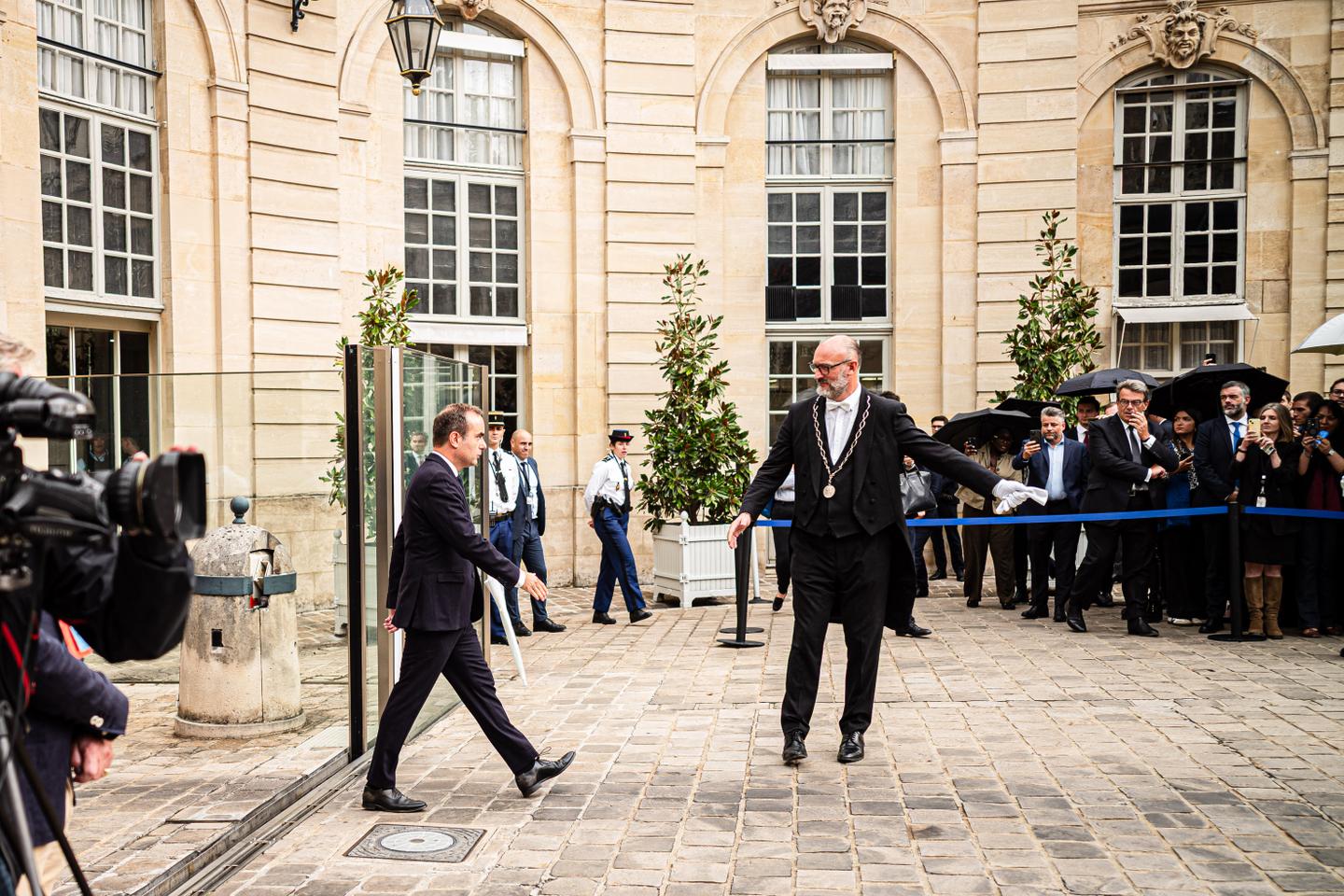On television, the handover ceremony was broadcast side-by-side with tear gas clouds. After being appointed as prime minister in the evening on Tuesday, September 9, Sébastien Lecornu officially took office on Wednesday, replacing François Bayrou. While outside, in the streets of Paris, police charged at protesters who had gathered as part of the “Block Everything” movement, the outgoing prime minister and his successor held a lengthy meeting on the first floor of the prime minister’s office.
Read more Subscribers only Sébastien Lecornu’s unstoppable rise: From MP assistant to French prime minister
In the office’s courtyard, the other outgoing cabinet members waited. Among them stood Justice Minister Gérald Darmanin, who had been among the leading candidates for the position of prime minister. He had already set aside his disappointment at not having been promoted and amused himself by counting all the prime ministers to have come and gone since 2017. He counted eight. Someone around him corrected him: Lecornu was “only” the seventh.
Arriving at noon, together with his chief of staff, Philippe Gustin, who has worked alongside him for about a dozen years, the new prime minister was greeted by Bayrou with a smile. Nothing betrayed Bayrou’s cold feelings toward his successor, whom he considers a mere “courtier.” In a brief speech after the handover ceremony, Lecornu, magnanimously paid tribute to his predecessor’s “extraordinary courage,” which, he said, “will one day be recognized.” Yet he quickly sought to distinguish himself from Bayrou. “We will need ruptures, and not just in form, and not just on the method, but also ruptures in substance,” he said, with a serious tone.
You have 75.51% of this article left to read. The rest is for subscribers only.
